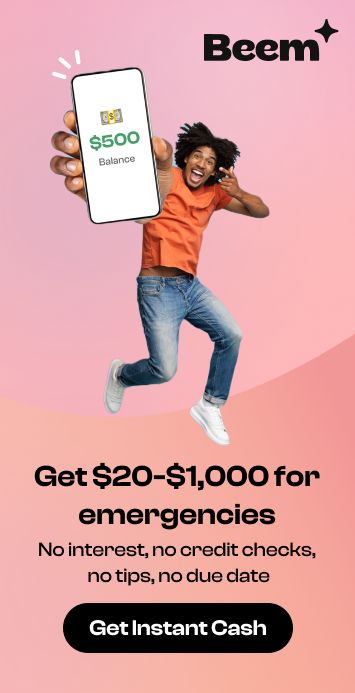Hey there, finance fam! Let’s talk about personal loans and income for a second. Do lenders need to pry into your income debts when applying for one of these loans? The answer is a hard yes. It’s like the IRS scrutinizing your tax return. Lenders need to ensure you’ve got the cash flow to handle that loan responsibly before handing over the funds.
But don’t worry; income verification doesn’t have to mean bureaucratic torture. It’s really about protecting both you and the lender. Lenders are taking a calculated risk by lending to you, so they want reassurance that you can repay that loan plus interest on schedule.
How Does Income Verification Work?
Ever been in that nerve-wracking moment applying for a personal loan, feeling like you’re being grilled about your income? You’re not alone in that! Many people can relate. Lenders need to confirm your income, but the process can be manageable. Let’s break it down.
For Example: You’re eyeing that new credit card at your favorite clothing store. They wouldn’t just hand it over without checking if you’re financially responsible, would they? Lenders work similarly to ensure you can handle the loan before giving the green light. It’s all about ensuring you’re both on the same financial page.
The Paperwork Paper Trail
For this classic method, you’ll need to provide income documentation – think recent pay stubs, W-2s or even full tax returns. The numbers in black-and-white show a clear picture of your income history and stability.
The Digital Data Dive
In modern world, many lenders utilize online systems that can securely tap into your bank accounts, payroll records, or income databases to verify your finances electronically. It’s a quicker, more straightforward process than digging through old paperwork. Whichever route the lender chooses, just be prepared to demonstrate you’re bringing in enough reliable income to cover those future loan payments. No biggie! The lender is doing their due diligence to protect their investment in you. So there you have it – income verification may be standard for personal loans, but it doesn’t have to be a hassle. A little transparency goes a long way!
Why Do Lenders Require Income Verification?
They want to make sure you, the excellent Borrower can comfortably repay the loan with interest. Income verification is their way of saying, “Hey, this looks good! They seem to have a steady flow of income to handle this loan on top of their bills.”
Consider it like this: would you lend your best friend twenty bucks without knowing if they had cash to pay you back? Probably not. Income verification works similarly but with many more zeros on the line.
There are two main reasons why income verification is a big deal:
Borrowing Smarts: Lenders want to see if your income can handle the loan payment on top of your regular expenses. They want you to be something other than house-of-cards style, where one extra bill throws everything off balance. By verifying your income, they assess if the loan payment is a manageable chunk of your paycheck. Responsible borrowing is critical, and income verification helps ensure that!
Reliable Repayment: Your pay stubs and tax returns (let’s be honest, nobody enjoys those) are like your financial resume. They show lenders how long you’ve been at your job and how much cash you usually bring each month. The more consistent your income flow looks, the more like a budgeting boss you appear in their eyes! This makes them feel confident you’re a reliable borrower who can handle the loan payments without sweat. After all, the steadier your income, the less likely they will end up chasing you down for their money – which is a win for everyone, right?
What Documents Do You Need to Prove Your Income?
Proof of income? Lenders have to see the green, you know? Here in the US, when you apply for a personal loan, they typically ask for some documentation to verify your income. This helps them make sure you can comfortably handle the loan repayments.
What kind of documents?
- Pay Stubs: Your recent pay stubs are golden. The more recent they get, the better picture they get of your current earnings.
- W-2 Forms: Think of these as your income report cards. They show your total earnings and taxes withheld from your employer for the previous year.
- Self-Employed Folks: Tax returns are your best bet! They give lenders a more comprehensive view of your income and tax situation.
- Bonus Round (depending on the lender):
- Bank Statements: Showcasing deposits can be helpful if your income varies or you’re self-employed.
- 1099 Forms: Are you working on any freelance gigs? These forms show any income you receive from clients who aren’t your employer.
How Important is Income for Loan Approval?
You wouldn’t lend a buddy twenty bucks without checking if they have cash. Lenders are the same but with way more money on the line. They have to be sure you can pay them back, with interest, and on time. Your income is their way of gauging that.
Here’s the income lowdown:
- Can You Afford It?: Lenders need to know your income to handle the loan payment on top of your regular bills. They don’t want you house-of-cards style, where one extra cost throws everything off. They check your income to see if the loan payment fits your budget.
- Reliable Borrower?: Steady income is a good sign you’ll repay the loan. When lenders see your pay stubs or tax returns (those not-so-fun forms!), they get a picture of your work history and usual earnings. This helps them understand the risk of lending you money. The steadier your income, the more reliable you seem.
What Documents are Typically Required for Income Verification?
Lenders typically require various documents to get a comprehensive picture of your financial situation when it comes to income verification for personal loans. Here’s a breakdown of the standard documentation they may ask for:
Employment/Salary Documentation
- Recent pay stubs (usually covering the last 30-60 days)
- W-2 forms from the previous 1-2 years
- Employment verification letter from your employer
- Year-to-date profit and loss statement (if self-employed)
- Tax Returns
- Personal tax returns from the last 1-2 years
- Business tax returns if you are self-employed
Bank Statements
- Personal and business bank statements (typically last 2-3 months)
- These help verify income amounts and sources
Other Potential Documents
- 1099 forms for freelance/contract work
- Social Security/disability award letters
- Alimony/child support documentation
Rental Income Statements
It’s important to note that documentation requirements can vary from lender to lender. Some may require more or less information depending on the loan amount, your income sources, credit history, and other factors.
The key things lenders are looking for are:
- Verification of your stated income amounts
- Stability and consistency of those income sources
- Your overall debt-to-income ratio
How Does Income Verification Impact the Loan Amount I Can Get?
When verifying your income, we look at accurate documentation – recent pay stubs, W-2s, tax returns, and bank statements. We want to see the actual dollar amounts hitting your accounts after taxes and deductions. And we want to see if that income is consistent month-to-month or if it jumps around a bunch. Those details are important.
But it’s not just about your total income number. We must also look at all your other monthly bill payments and debt obligations – credit cards, auto loans, rent/mortgage, etc. We calculate a debt-to-income ratio to make sure you can realistically afford the new loan payment on top of those recurring bills.
The general guideline is that your total monthly debt payments, including the potential new loan, shouldn’t exceed around 43% of your gross monthly income. So, if your verified income shows $5,000 per month, you should have total payments of at most $2,150.
By looking at your income numbers compared to that debt-to-income guideline, we can determine your most affordable monthly payment. That affordable payment amount drives the maximum loan size, which we can responsibly approve based on the interest rate and repayment timeline.
The more stable, consistent income you can verify, and the less existing debt you’re already paying, the higher that maximum loan amount is likely to be. But we also must lend responsibly and make sure you can realistically manage the payment every month.
Verifying income is more than just bureaucratic red tape. It’s about crunching the numbers to make sure your loan amount lines up with what your current finances can handle. It protects you and the lender from getting in over your head down the road. Managing risk for everyone involved is a big part of it.
Can I Acquire a Loan Without Income Verification?
Income verification? It’s a big deal for personal loans. It’s a real dealbreaker for most lenders. Why? Because lending you money is a risk, they must be sure you can repay them. Income verification is their way of checking your financial muscles.
Here’s the breakdown:
- Can you afford the loan? Lenders want something other than house-of-cards style, where one extra bill throws everything off. They check your income to see if the loan payment fits your budget.
- Reliable Borrower? A steady income is a good sign. When they see your pay stubs or tax returns (ugh, those things!), they get a glimpse of your job history and earnings. The steadier your income, the more reliable you seem.
Exceptions (but tread carefully):
- Small, high-interest loans: Some lenders might offer these, but be prepared for a bulky price tag.
- Collateral: If you have a valuable asset like a car, you could offer it as collateral for a secured loan. This might make income verification less critical.
- The truth: Skipping income verification usually isn’t the best option. It often leads to higher interest rates or riskier loans.
What Are Personal Loans With No Income Verification?
With these loans, the lender does not require traditional income documents like pay stubs or tax returns. Instead, you “state” your income amount, and the lender approves you based on factors like your credit history, debt levels, assets for collateral, and their discretion. Examples of personal loan types that may not require income verification:
Personal Loans for Excellent Credit
Some online lenders bypass income verification if you have an excellent credit score, usually 760+. Your stellar credit demonstrates your ability to repay.
Secured Loans
When you pledge an asset like a car or home as collateral, lenders take on less risk and may not require income docs. They can hold the collateral if you default.
Pawnshop Loans
At a pawnshop, you temporarily hand over valuable items as collateral. The loan amount depends on your pawn value, not your income level.
How to Get Loans With No Income Verification?
If you need a personal loan without verifying income through documentation, here are some tips:
- Check your credit score – You’ll likely need excellent credit to qualify with reputable lenders
- Look at online lenders – Some online companies have more flexible underwriting criteria
- Consider a secured loan using collateral – Putting up an asset could remove income verification requirements
- Visit a pawnshop for a secured loan on valuables
- Join a credit union and apply through them
- Prepare to share alternative documentation like bank or profit/loss statements
Best Loans With No Income Verification or Low Income Required
Some better personal loan options if you have little to no income to verify include:
- Pawnshop loans using jewelry, electronics, etc. as collateral
- Vehicle title loans using your car title as collateral
- Peer-to-peer lending through platforms like LendingClub
- Credit union loans for members, sometimes with lower income criteria
- Getting a secured credit card by making a refundable deposit
- Remember that loans not requiring income verification tend to come with higher rates or less favorable terms.
Pros and Cons of No-Income Loans
As with any financial product, no-income personal loans have potential pros and cons to weigh:
Pros
- Provide access to credit if you can’t verify income traditionally
- The application process may be quicker with less documentation
- More flexible lending criteria in some cases
Cons
- Higher interest rates since these are viewed as riskier
- Likely lower maximum borrowing limits
- More stringent requirements around credit, debt, collateral
- Some lenders may still want alternative documentation
- Could impact the ability to get future loans/credit
Alternative Sources of Financing for Low/No Income
If a standard or no-income loan isn’t an option, some other potential financing sources include:
Co-Signed Loans
A co-signer who can provide income verification and share responsibility improves approval odds.
Credit Union Emergency Loans
Some credit unions offer small emergency loans to members with less stringent income requirements.
Loans and Grants From Non-Profits
You may qualify for special programs through non-profits, charities, or the government, depending on your circumstances.
Conclusion
While income verification is standard, there are some potential options to get a personal loan without detailed documentation – though these tend to come with trade-offs. Whether a no-income verification loan makes sense depends on your situation and comfort level with the terms and requirements. Exploring all options can help ensure you make the right choice. While exploring all options check out Beem, an AI-powered Super App that serves as a marketplace for the best personal loans based on your financial needs. Use Beem to check personalized rates and explore personal loans ranging from $500 to $100,000 from industry leaders.






























